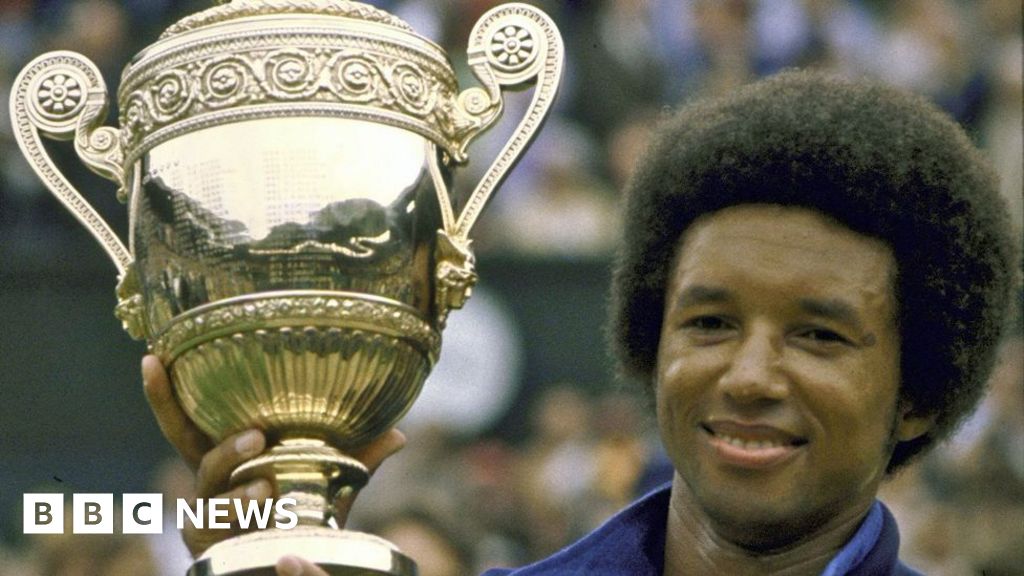Arthur Ashe’s Historic Wimbledon Victory
Fifty years ago, Arthur Ashe made history by becoming the first Black man to win the Wimbledon Men’s final, defeating fellow American Jimmy Connors. Despite this remarkable achievement, Ashe expressed that he did not want his legacy solely defined by this victory.
A Commitment to Social Justice
Ashe was deeply committed to fighting racial discrimination, using his platform to address issues such as apartheid in South Africa. A year before his death in 1993, he stated in a BBC interview, “I don’t want to be remembered for having won Wimbledon… it’s not the most important thing in my life.” His Centre Court triumph on July 5, 1975, is nonetheless celebrated as a pivotal moment in sports history.
His Journey to South Africa
In the early 1970s, Ashe faced repeated visa denials from South Africa, a country under apartheid—a legalized system of racial segregation. Eventually, in 1973, he received permission to participate in the South African Open, under the condition that the event would be open to both Black and white spectators. His presence sparked mixed reactions, as some considered it a legitimization of the apartheid regime.
Mixed Reactions from South Africans
Although some Black South Africans condemned Ashe’s visit, others embraced it. Mark Mathabane, who grew up in Johannesburg, idolized Ashe and attended a tennis clinic Ashe held in Soweto. He fondly referred to Ashe as “Sipho,” meaning “gift” in Zulu, symbolizing hope and inspiration for many in the township.
Continuing Legacy Through Activism
Ashe returned to South Africa multiple times post-1973 and contributed to the establishment of the Arthur Ashe Soweto Tennis Centre, aimed at nurturing tennis talent. This center was initially vandalized during anti-apartheid protests but was renovated years later and serves to inspire youth through sports and life skills.
Advocating for Boycotts and Change
Ashe’s experiences in South Africa led him to advocate for an international sports boycott against the apartheid regime. He became a voice of dissent and joined international protests, amplifying the global outcry against racial segregation. His activism, particularly regarding HIV/AIDS awareness, played a critical role in his life until his passing in 1993.
Commemoration and Lasting Impact
In honor of Ashe’s remarkable legacy, Wimbledon commemorates his 1975 victory with special exhibits. While he won three Grand Slam titles, many, like Mathabane, remember Ashe more for his activism and the inspiration he provided—liberating minds and nurturing dreams of a better future.



